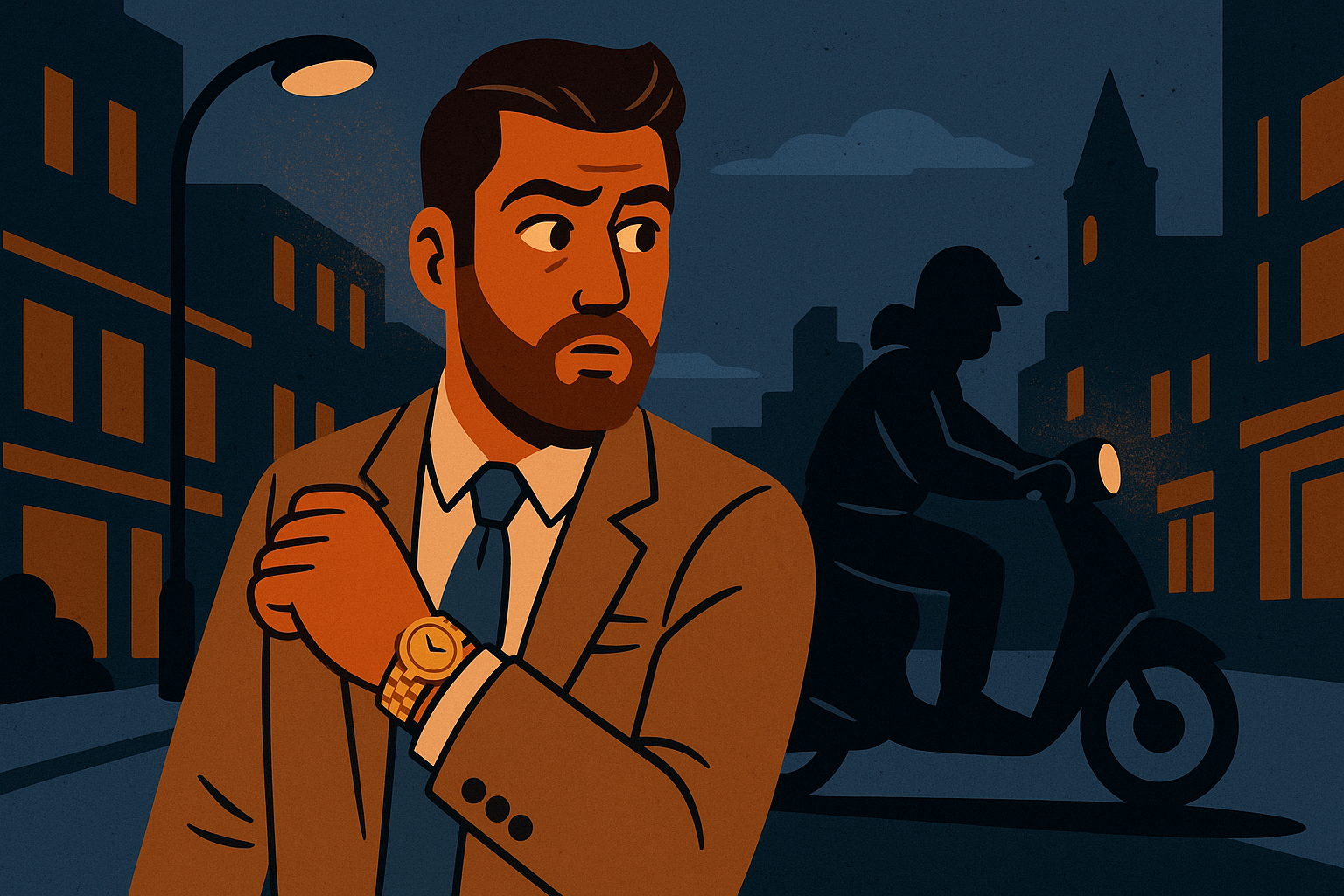In the past, dressing up in London was simple — a matter of taste, confidence, and occasion. A fine watch, a pair of polished shoes, perhaps a piece of family jewelry — these were marks of pride, not peril. But today, for many Londoners, luxury accessories have become liabilities.
Despite official statistics showing that serious crime has fallen, with the Metropolitan Police reporting a 12% drop in violent crime and murders at a 10-year low, everyday thefts tell a different story. According to police data, more than 117,000 mobile phone thefts were reported in the city last year — roughly one every five minutes. Increasingly, thieves are turning their attention to high-end watches, rings, and jewelry, often snatched in seconds by moped-riding criminals who vanish before victims can react.
From Fashion to Fear
What used to be a symbol of elegance now feels like a flashing target. Many Londoners admit to hiding their valuables, tucking watches under sleeves, or leaving jewelry at home entirely. What was once an expression of personal style has evolved into a form of risk assessment.
“I’ve stopped wearing anything remotely shiny on public transport,” says one London resident. “Even cufflinks can draw the wrong kind of attention.” Conversations about luxury have shifted too — from admiration to caution. Compliments like “Nice watch” now come with undertones of concern, as if wearing something valuable were an act of bravery.
A Changing Urban Mindset
The fear isn’t necessarily about violent crime but about the inconvenience, embarrassment, and sense of vulnerability that follow a theft. Many victims report that robberies today happen without confrontation — just a momentary distraction and a quick grab by an opportunist.
The anxiety is compounded by social media habits. Posting photos of watches, jewelry, or tagged locations can unwittingly turn users into targets. Thieves monitor platforms for clues about when and where to strike, turning digital pride into physical risk.
The New Rule: Safety Over Style
This heightened awareness has subtly changed how people experience the city. Many now reserve their finest accessories for private settings — dinner parties, events, or gatherings where safety feels certain. It’s not about fear, they say, but fatigue — the exhaustion of staying alert, scanning surroundings, or checking pockets repeatedly during a night out.
“I’d rather enjoy my evening than worry about what I’m wearing,” says another Londoner. “I’ll take comfort over Swiss precision, safety over sentiment.”
A Reflection of Modern London
London remains far from lawless, but its relationship with luxury has shifted. The city that once celebrated fashion and individuality now demands caution and calculation. For many, style no longer means standing out — it means getting home with everything intact.
As one writer put it: “Nothing says style quite like arriving home with everything you left with — dignity, accessories, and your favourite watch still ticking away.”








